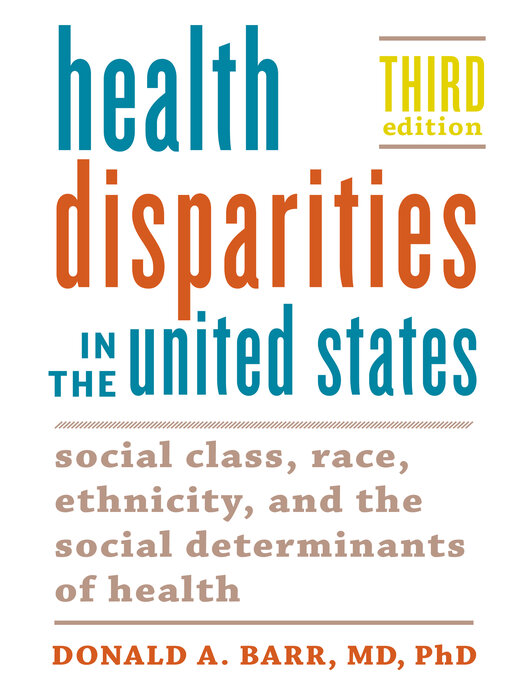Challenging students to think critically about the complex web of social forces that leads to health disparities in the United States.
The health care system in the United States has been called the best in the world. Yet wide disparities persist between social groups, and many Americans suffer from poorer health than people in other developed countries. In this revised edition of Health Disparities in the United States, Donald A. Barr provides extensive new data about the ways low socioeconomic status, race, and ethnicity interact to create and perpetuate these health disparities. Examining the significance of this gulf for the medical community and society at large, Barr offers potential policy- and physician-based solutions for reducing health inequity in the long term.
This thoroughly updated edition focuses on a new challenge the United States last experienced more than half a century ago: successive years of declining life expectancy. Barr addresses the causes of this decline, including what are commonly referred to as "deaths of despair"—from opiate overdose or suicide. Exploring the growing role geography plays in health disparities, Barr asks why people living in rural areas suffer the greatest increases in these deaths. He also analyzes recent changes under the Affordable Care Act and considers the literature on how race and ethnicity affect the way health care providers evaluate and treat patients.
As both a physician and a sociologist, Barr is uniquely positioned to offer rigorous medical explanations alongside sociological analysis. An essential text for courses in public health, health policy, and sociology, this compelling book is a vital teaching tool and a comprehensive reference for social science and medical professionals.
